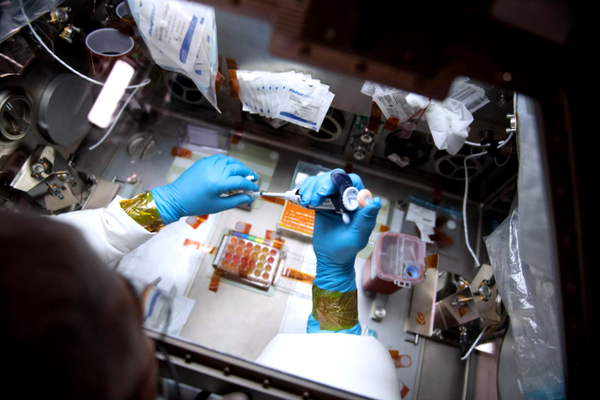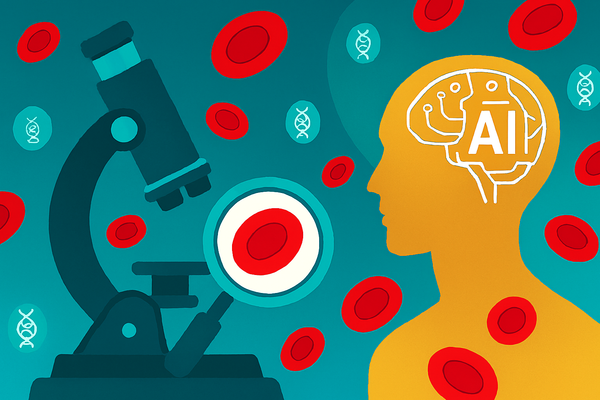PRECISION MEDICINE: PIONEERING THE FUTURE OF HEALTHCARE

In the vast landscape of healthcare, the paradigm of precision medicine has emerged as a beacon of hope and innovation.
Unlike the traditional one-size-fits-all approach, precision medicine tailors’ medical treatment and interventions to the unique characteristics of each individual. According to the Precision Medicine Initiative, precision medicine is "an emerging approach for disease treatment and prevention that takes into account individual variability in genes, environment, and lifestyle for each person."
At the core of precision medicine lies artificial intelligence which is making this form of medicine a reality many may not have seen coming. The key areas where artificial intelligence is making significant impact includes genomic analysis and interpretation, medical imaging and diagnostics, predictive analytics and diseases risk assessment, treatment personalization and optimization, drug discovery and development, remote monitoring and health management, enhancing clinical decision support, amongst other things.
Since time memorial, most medical treatments the world over are one size fits all, designed for the average patient, which may be successful for some patients but not for others. Precision medicine on the other hand, sometimes known as "personalized medicine" is an innovative approach to tailoring disease prevention and treatment that takes into account differences in people's genes, environments, and lifestyles.
The goal of precision medicine is to target the right treatments to the right patients at the right time. Precision Medicine is built upon solid foundation of understanding the individual variability in genes, environment, and lifestyle with the help of artificial intelligence. At its core lies the integration of genome data, allowing healthcare professionals to unravel the genetic code and identify variations that may contribute to a person’s susceptibility to certain diseases.
The Human Genome Project, completed in 2003, played a pivotal role in unlocking the potential medicine by mapping the entire human genome.
The advent of high throughput sequencing technologies has further accelerated the analysis of genetic information, making it more accessible and affordable. Beyond genomics, precision medicine incorporates other omics data such as proteomics, metabolomics, and microbiomics, providing a comprehensive picture of an individual’s health.
The practical applications of precision medicine span a broad spectrum of healthcare. In oncology, for example, genetic profiling of tumours enables oncologists to identify specific mutations, allowing for the prescription of targeted therapies that are more effective and less toxic than traditional treatments. In infectious diseases, precision medicine guides the selection of antimicrobial agents based on the genetic makeup of the infecting microorganism, minimizing the risk of drug resistance.
Furthermore, precision medicine extends beyond treatment decisions. It plays a pivotal role in disease prevention by identifying individuals at higher risk due to genetic predispositions or environmental factors. This proactive approach allows for personalized screening and preventive measures, ultimately reducing the overall burden of disease.
While precision medicine holds immense promise, it is not without its challenges. The interpretation of genetic data is complex, and the identification of clinically relevant variants requires a nuanced understanding of genetics. Issues related to data privacy and security also loom large, as the vast amount of sensitive information generated by precision medicine raises concerns about unauthorized access and potential misuse. Ethical considerations surrounding genetic testing, particularly in the realm of reproductive choices and insurance coverage, add another layer of complexity. Striking a balance between the potential benefits of precision medicine and the need to protect individual rights and privacy is an ongoing challenge that must be addressed as the field continues to evolve.
Looking ahead, the future of precision medicine holds the promise of even more refined and targeted approaches to healthcare. Advances in artificial intelligence and machine learning are enhancing the interpretation of complex omics data, making precision medicine more accessible and actionable for a broader population.
Collaboration between AI and medical researchers, clinicians, and policymakers is crucial to overcoming current challenges and ensuring the responsible integration of precision medicine into mainstream healthcare. As we stand on the brink of a new era in medicine, precision medicine represents a transformative force that has the potential to redefine healthcare, ushering in an era where treatment is as unique as the individual it seeks to heal. Overall, AI is enhancing precision medicine by enabling a more data-driven, individualized approach to healthcare. This not only improves patient outcomes but also optimizes resource utilization and reduces overall healthcare costs.
By Thamsanqa Sibiya - Founder and CEO of Siza Telehealth





